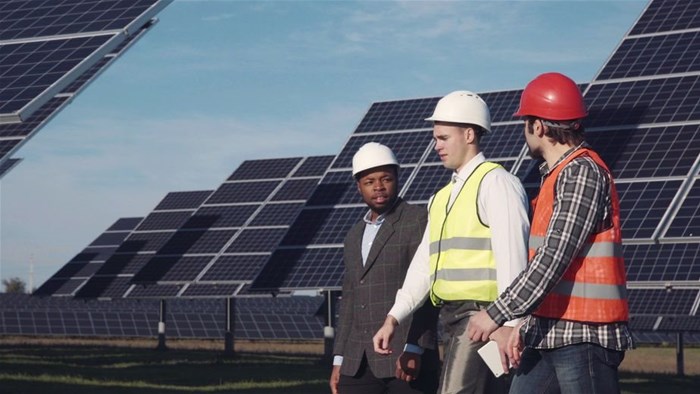






In 2016, the International Renewable Energy Agency and International Agency Photovoltaic Power Systems predicted that South Africa could accumulate between 750,000 and one million tons of photovoltaic waste by 2050. However, the rapid uptake of solar power by an increasing number of households and businesses could push this number even higher.
Solar power equipment typically has a lifespan of between 20 and 30 years, under optimal operating conditions. While this may seem a long way off, it is important that consumers are made aware of the need to properly dispose of used solar panels.
Under the Extended Producer Responsibility (EPR) Regulations, which came into effect in May 2021, solar panel producers must take responsibility to ensure that much of their products are returned (and recycled by an accredited and licenced facility) after being sold and used. Manufacturers, importers, and brand owners are held accountable for the entire life cycle of the products they place on the market, from conception to post-consumer waste disposal.
But Patricia Schröder, spokesperson for the producer responsibility organisation (PRO) Circular Energy, says consumers still have an important role to play. “If South Africa hopes to shift to make a meaningful and sustainable shift to renewable energy, we must involve everyone across the energy value chain. This includes consumers.”
Schröder says consumers can help to ensure that solar panels do not end up having a detrimental impact on the environment by enquiring about and taking part in the recycling programmes offered by producers instead of disposal of the panels themselves. Visit Circular Energy’s website to schedule a collection service for your electronic disposal needs.
South Africa does have the capacity to recycle solar panels. The glass and aluminium frame of a solar panel makes up more than 80% of its weight and both these materials can easily be recycled.
Although silicon only forms a small part of the panel, it is regarded as a hazardous material that cannot be disposed of in landfills. South African regulations stipulate that solar panels can only be recycled at licensed recycling facilities. “When these panels end up in landfills, it not only means that recyclable materials are going to waste. Some solar panel components can be very harmful, even penetrating the surrounding soil and water,” Schröder explains.
Schröder says South Africans using solar energy should be applauded for investing in green technology at a time combatting climate change has become critical. “However, consumers must also understand the possible negative impact that this same technology can have on the environment if it is not disposed of correctly,” she concludes.